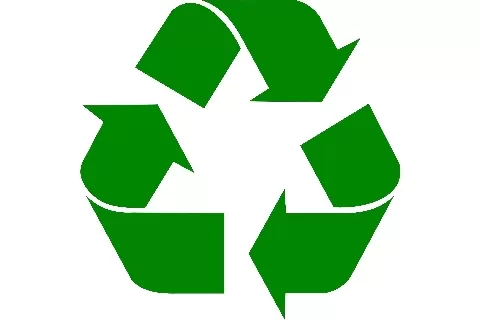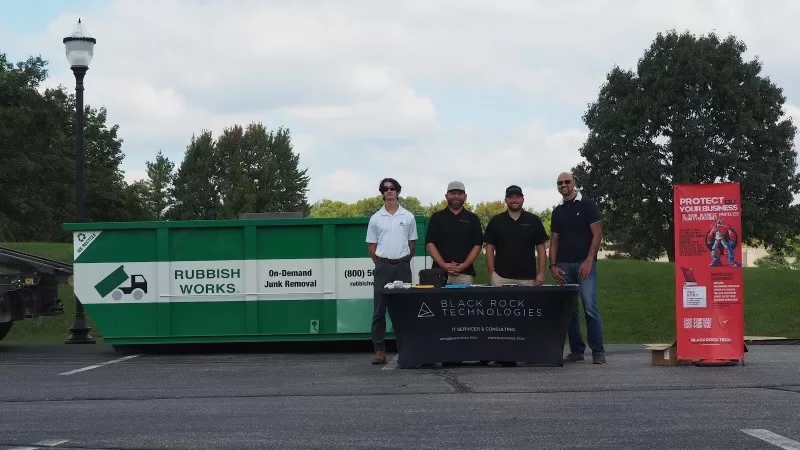
Rubbish Works Junk Removal - Full Service Removal When You Need It
Donation
We work with local charities to repurpose your junk within your own community. Donation is our first priority, so we do our best to identify items that can be repurposed!
Recycling
Any recyclable items in our truck that cannot be donated are separated and delivered to the appropriate local recycling facilities.
Disposal
To responsibly dispose of everything else, we follow all local protocols as well as our own high standards for sustainability.
The Rubbish Works Junk Removal Difference
Residential Junk removal
We offer full-service junk removal if you’ve moved, relocated, downsized, or inherited junk in your home.
Commercial Junk Removal
We provide junk removal for businesses, offices, storefronts, restaurants, warehouses, storage centers, and more.
Furniture Removal
Our team specializes in the removal of large, heavy, awkward, and antique items and hauls them away to be donated if needed.
Appliance Removal
We’re also able to take most home appliances to be donated, recycled, or disposed of.

Recycling vs. Landfills: The Clear Choice for a Sustainable Future
In today’s world, where environmental consciousness is at an all-time high, the debate between recycling and landfilling has become increasingly important. While both methods serve the purpose of waste disposal, they differ significantly in their environmental impact and long-term sustainability.
Landfills: A Burden on the Environment
Landfills, the traditional method of waste disposal, have become a major environmental concern. As waste accumulates in landfills, it decomposes anaerobically, releasing harmful greenhouse gases like methane and carbon dioxide. These gases contribute significantly to climate change, trapping heat in the atmosphere and causing global temperatures to rise.
Landfills also occupy vast areas of land, often taking up valuable space that could be used for other purposes. Moreover, landfills can pose a threat to groundwater and surrounding ecosystems as leachate, a toxic liquid produced by decomposing waste, can seep into the ground and contaminate water sources.
Recycling: A Path towards Sustainability
Recycling, on the other hand, offers a more sustainable and environmentally friendly approach to waste management. By diverting recyclable materials from landfills, recycling conserves natural resources, reduces energy consumption, and minimizes pollution.
When materials are recycled, they are processed into new products, reducing the need to extract and process raw materials. This conservation of resources helps to preserve forests, protect water sources, and minimize the environmental impact of mining and manufacturing activities.
Recycling also plays a crucial role in energy conservation. Producing new materials from recycled content typically requires less energy than manufacturing them from scratch. For instance, recycling aluminum cans can save up to 95% of the energy required to produce new cans from raw materials.
Moreover, recycling reduces pollution by diverting waste from landfills, preventing the release of harmful greenhouse gases and minimizing the risk of groundwater contamination.
The Benefits of Recycling
The benefits of recycling extend beyond environmental protection. Recycling creates jobs in the recycling industry, stimulates economic growth, and reduces the overall cost of waste management. Additionally, recycling promotes public awareness about environmental issues and encourages individuals to adopt more sustainable practices.
Making Recycling a Priority
To maximize the benefits of recycling, it is essential to promote effective recycling programs and encourage individual participation. Governments can play a key role by implementing comprehensive recycling policies, investing in recycling infrastructure, and educating the public about proper recycling practices.
Individuals can also contribute to recycling efforts by making informed choices about the products they purchase, choosing items with minimal packaging and those made from recycled materials. Additionally, properly sorting recyclable materials and participating in local recycling programs can significantly enhance the effectiveness of recycling efforts.
Conclusion
In conclusion, recycling stands as a clear winner in the debate against landfills. Recycling offers a sustainable and environmentally friendly approach to waste management, conserving resources, reducing energy consumption, and minimizing pollution. By embracing recycling, we can protect our planet, promote economic growth, and create a more sustainable future for generations to come.